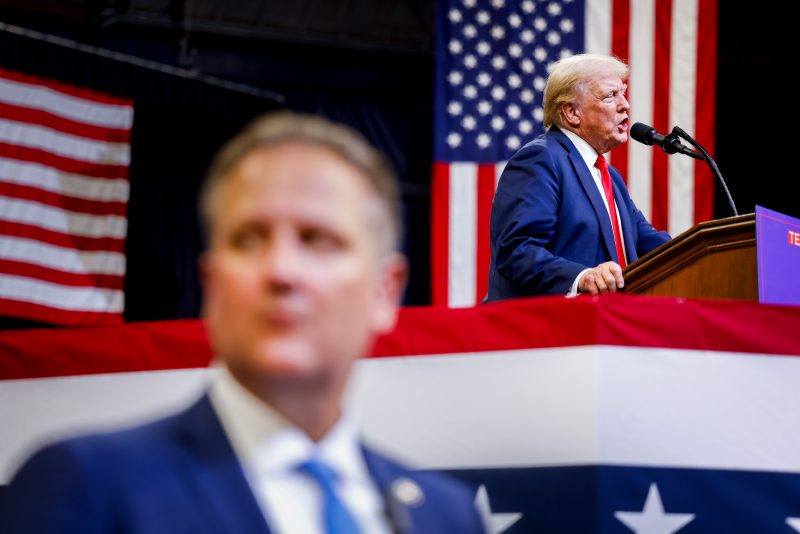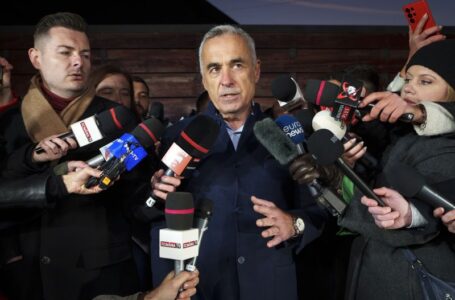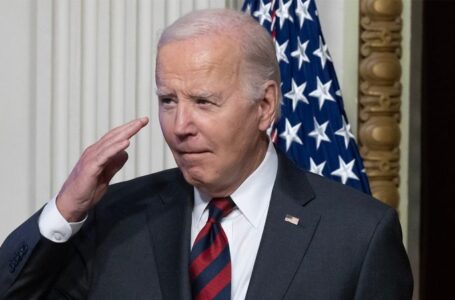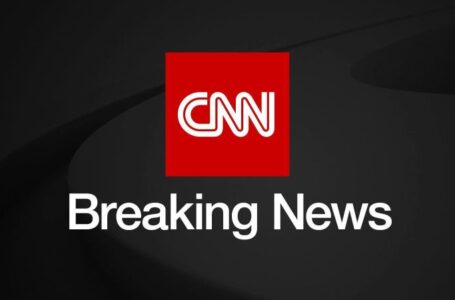Romanian far-right pro-Russian candidate barred from presidential vote
Trump campaign says it is victim of foreign hack after leak of Vance report


Donald Trump’s presidential campaign said on Saturday thatit has been the victim of a foreign hack,after the campaign received questions from news organizations about a lengthy vetting document on vice-presidential nominee Sen. JD Vance (R-Ohio) sent to the outlets.
“These documents were obtained illegally from foreign sources hostile to the United States, intended to interfere with the 2024 election and sow chaos throughout our Democratic process,” Steven Cheung, a campaign spokesman, said in a statement.
Cheung pointed to a report released Friday by Microsoft in which the company said it had discovered evidence that Iranian hackers had tried to break into the email account of a “high-ranking official” on a U.S. presidential campaign in June.
The company did not publicly identify the campaign or confirm whether it believed the hack had been successful. A person familiar with Microsoft’s work confirmed that the report’s reference was to the Trump campaign.
Cheung did not disclose whether the campaign has been in contact with Microsoft and did not offer evidence for its assertion that the documents were hacked by Iran.But he said in a statement that the timing of the episode described by Microsoft coincides with Trump’s selection of Vance as his running mate.
People familiar with the matter said the campaign separately concluded earlier this summer its email system had been breached but did not disclose it publicly or to law enforcement. The people said some officials were told to take more protective measures on their email accounts. At the time, campaign officials communicated to others that they weren’t sure who hacked the emails. The people spoke on the condition of anonymity because of the sensitivity of the internal matter.
Politico was first to report the statement from Trump’s campaign Saturday. The news outlet reported that it had received messages starting July 22 from an anonymous sender offering proprietary information about the Trump campaign, including a copy of a vetting document related to Vance.
On Thursday, The Washington Post was also senta 271-page document about Vance from a sender who called himself Robert and used an AOL email account. Dated Feb. 23 and labeled “privileged & confidential,” the documenthighlighted potentialpolitical vulnerabilities for the first-term senator. Two people familiar with the document confirmed it was authentic and was commissioned by the campaign from Brand Woodward, a law firm that represents a number of prominent Trump advisers in investigations by state and federal authorities.
The document drew from publicly available information, including past news reports and interviews with the senator. The campaign commissioned several reports of other candidates, too, the advisers said.
The sender would not speak on the telephone with a Post reporter but indicated they had access to additional information, including internal campaign emails and documents related to Trump’s court cases.
“Consider me as an anonymous resource who has access to djtfp24 campaign. There are [sic] other stuff too, that I can send you, if this content is in your field of interest,” the sender wrote in an email to the reporter.
“I hope you understand my limitations and my vulnerable position in the campaign,” the sender added.
On Friday, Microsoft said a group run by Iran’s Islamic Revolutionary Guard Corps had compromised the email account of a former adviser to a U.S. presidential campaign and used that address in June to contact a senior official who was still engaged in the campaign. That email contained a link to a site that could have allowed Iran to intercept the target’s other emails, Microsoft said. A spokesman for the company said it would not reveal whether the attack had succeeded and declined to comment Saturday.
A spokesperson for the National Security Council said the Biden administration “strongly condemns any foreign government or entity who attempts to interfere in our electoral process or seeks to undermine confidence in our democratic institutions.”
In a statement, the FBI said the agency was aware of the media reports and had no comment. A spokesperson for Iran’s permanent mission to the United Nations did not respond to a request for comment.
U.S. intelligence officials said in July that Iran is working to stoke societal discord in the United States and undermine Trump’s bid to regain the White House, a repeat of Iranian efforts in 2020.
Prosecutors in New York last month also charged a Pakistani man with ties to Iran in a murder-for-hire plot to assassinate a politician or U.S. government official on American soil. The alleged Iranian-backed plot, however, had raised concerns about Trump’s safety in the weeks before the attempted assassination in July, according to U.S. officials familiar with the investigation who spoke on the condition of anonymity to describe internal discussions.
In his statement, Cheung referenced reports of that alleged plot:“The Iranians know that President Trump will stop their reign of terror just like he did in his first four years in the White House. Any media or news outlet reprinting documents or internal communications are doing the bidding of America’s enemies and doing exactly what they want.”
A spokesman for Democratic nominee Vice President Kamala Harris’s campaign did not immediately respond to a request for comment.
Cheung’s statement is a marked change in tone from the 2016 campaign, when Trump repeatedly touted internal Democratic emails and other documents released by WikiLeaks that U.S. officials suspected had been stolen by Russia.
“I love WikiLeaks,” Trump said while campaigning against Democratic nominee Hillary Clinton in October 2016, after the organization had posted online tens of thousands of emails hacked from the account of Clinton’s campaign chairman.
“This WikiLeaks stuff is unbelievable,” he said two days later, as the site posted daily troves of internal Clinton campaign emails. “It tells you the inner heart; you gotta read it.”
Thomas Rid, professor of strategic studies at Johns Hopkins University, called hacks and leaks — similar to what happened in 2016 and to what the Trump campaign has alleged took place with the Vance report — the “white whale” of foreign influence operations. “Close observers in the intelligence community and beyond have long been waiting for another sighting of that elusive beast: potentially highly impactful, deceptive, perhaps with forgeries slipped into genuine leaked material, with real news value, hard to counter,” he said, but added this did not appear to be it.
Devlin Barrett, Joseph Menn, Aaron Schaffer, Chris Dehghanpoor, Sam Oakford and Toluse Olorunnipa contributed to this report.











